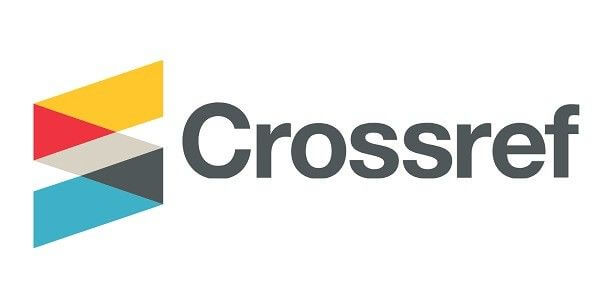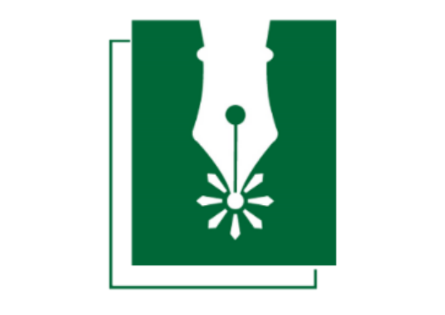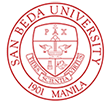Exploring pedagogical leadership opportunities for a hybrid classroom from the experiences and perspectives of selected college deans and administrators in Manila
Keywords:
hybrid classroom, phenomenography, new normal in education, pedagogical leadership, higher education institutionsAbstract
This study is an exploration of how the hybrid classroom model influenced teaching and learning in higher education institutions in Manila using the perspectives and experiences of Deans and Administrators who were selected via snowball sampling. Through phenomenography, a qualitative research approach that could represent variations of individuals’ experience of a common phenomenon while at the same time, capturing the essence of the need to improve or reform the response towards the phenomenon, opportunities for pedagogical leadership were undermined. Ambiguity in terms of the extent of student participation and engagement, disparity in online and on-site student test scores, weak self-directedness, and time management were identified to be learning gaps. On the other hand, the complexity of doing both online and on-site tasks, lack of digital training, alongside available technical support was culled to be teaching gaps. Outcome spaces drawn from these findings were: conceptual clarity, academic integrity, digital equity, and digital inclusion. From these aforesaid outcome spaces, the following pedagogical leadership opportunities are mapped: 1) the Creation of a standard hybrid syllabus template alongside policies concerning academic integrity, and 2) the Application of the Plan-Do-Study-Act (PDSA) cycle as a baseline method for constantly identifying the weak digital skills of teachers and consequently, mapping retooling and upskilling activities for them, thereby promoting digital equity and inclusion.
References
Abugre, J. B., & Kpinpuo, S. D. (2017). Determinants of Academic Mentoring in Higher Education: Evidence from a Research University Educational Process. International Journal, 6(2), 20-36. DOI: https://doi.org/10.22521/edupij.2017.62.2
Ayub E, Lim CL, Yeo DCH, and Ismail SR (2022) Developing a Solution for Hybrid Classroom: A Pilot Study from a Malaysian Private University. Front. Educ. 7:841363. https.//www.doi.org/ 10.3389/ feduc.2022. 841363 DOI: https://doi.org/10.3389/feduc.2022.841363
Barrot, J.S., Llenares, I.I. & del Rosario, L.S. (2021) Students’ online learning challenges during the pandemic and how they cope with them: The case of the Philippines. Educ Inf Technol 26, 7321–7338. https://www.doi.org/10.1007/s10639-021-10589-x DOI: https://doi.org/10.1007/s10639-021-10589-x
Beatty B. (2019). Hybrid-Flexible Course Design Implementing student-directed hybrid classes. Hybrid-Flexible Course Design (hkmu.edu.hk) DOI: https://doi.org/10.59668/33
Beatty B. (n.d.) Values and Principles of Hybrid-Flexible Course Design. https://edtechbooks.org/hyflex/hyflex_values#:~:text=The%20HyFlex%20course%20design%20is,designers%20and%20instructors%20to%20follow.
Beatty, B. (2010) Hybrid Flexible Course Design. https://edtechbooks.org/hyflex/book_intro
Bonderud, D. (2021). EdTech Focus on K-12. What Role will Hybrid Learning Play in the Future of K-12 Education? https://edtechmagazine.com/k12/article/2021/02/what-role-will-hybrid-learning-play-future-k-12-education-perfcon
Bryk, A.S., Gomez, L.M, Grunow, A., & LeMahieu, P.G. (2015). Learning to improve: How America’s schools can get better at getting better. Cambridge, Harvard Education Press.
Crouch M. and McKenzie H. (2006) The logic of small samples in interview-based qualitative research, SAGE Journals 45, (4). https://www.doi.org/10.1177/0539018406069584 DOI: https://doi.org/10.1177/0539018406069584
Commission on Higher Education (2020) CMO No.4 Series of 2020. https://ched.gov.ph/wp-content/uploads/CMO-NO-.-6-S.-2022.pdf
Commission on Higher Education (2022) CMO No.6 Series of 2022. https://ched.gov.ph/wp-content/uploads/CMO-NO-.-6-S.-2022.pdf
De La Salle University (2021). http://www/dlsu.edu.ph
EdTech Focus on K-12 (2021). What Role Will Hybrid Learning Play in the Future of K–12 Education? https://edtechmagazine.com/k12/article/2021/02/what-role-will-hybrid-learning-play-future-k-12-education-perfcon
Fishman, T. (2014). The Fundamental Values of Academic Integrity. Second Edition (International Center for Academic Integrity). https://www.academicintegrity.org/wp-content/uploads/ 2017/12/ Fundamental-Values-2014.pdf.
Fredricks, J. A., Blumenfeld, P. C., & Paris, A. H. (2004). School Engagement: Potential of the Concept, State of the Evidence. Review of Educational Research, 74(1), 59–109. https://www.doi.org/10.3102/00346543074001059. DOI: https://doi.org/10.3102/00346543074001059
Garrison, D. R. (2003). “Self-directed learning and distance education,” in Handbook of Distance Education, eds M. G. Moore and W. Anderson (New Jersey: Lawrence Erlbaum Associates), 161–168.
Gibbs, G. R. (2007). Qualitative Research kit: Analyzing qualitative data. London, England: SAGE Publications, Ltd https://www.doi.org/10.4135/9781849208574 DOI: https://doi.org/10.4135/9781849208574
Herodotou C., Hulme A., Whiteclock D., et al. (2019). Innovative Pedagogies of the Future: An Evidence- Based Selection. Review article. Frontier Education. 4, 2019. https://www.doi.org/ 10.3389/feduc.2019.00113 DOI: https://doi.org/10.3389/feduc.2019.00113
Hew, K.F., Jia C., Gonda D.E. et al (2020). Transitioning to the “new normal” of learning in unpredictable times: pedagogical practices and learning performance in fully online flipped classrooms. Int J Educ Technol High Educ 17, (57). https//www.doi.org/10.1186/s41239-020-00234-x DOI: https://doi.org/10.1186/s41239-020-00234-x
Hodges, C., Moore, S., Lockee, B., Trust, T., and Bond, A. (2020). The Difference between Emergency Remote Teaching and Online Learning. Educause Review, 27. https://er.educause.edu/articles/ 2020/3/the-difference-between-emergency-remote-teaching-and-online-learning
Joan, R. (2013). FLEXIBLE LEARNING AS NEW LEARNING DESIGN IN CLASSROOM PROCESS TO PROMOTE QUALITY EDUCATION. i-manager’s Journal on School Educational Technology, Vol. 9l No. 1l June - August 2013. https://files.eric.ed.gov/fulltext/EJ1098325.pdf DOI: https://doi.org/10.26634/jsch.9.1.2401
Judge S., Puckett K. and Cabuk B. (2004). Digital Equity: New Findings from the Early Childhood Longitudinal Study. Journal of Research on Technology in Education. https://files.eric.ed.gov/fulltext/EJ690936.pdf DOI: https://doi.org/10.1080/15391523.2004.10782421
Jung, I. Y., and Yeom, H. Y. (2009). Enhanced Security for Online Exams Using Group Cryptography. IEEE Trans. Educ. 52 (3), 340–349. https://doi.org/10.1109/te.2008.928909 DOI: https://doi.org/10.1109/TE.2008.928909
Kennedy, K., Nowak, S., Raghuraman, R., Thomas, J., and Davis, S. F. (2000). Academic Dishonesty and Distance Learning: Student and Faculty Views. Coll. Student J. 34, 309–314.
Koo, A. (2021). Logic as a Blended Course Teaching Philosophy. Online First. Doi: 5840/teachphil2020511121
Lamport M. And Hill, R. (2012). Impact of Hybrid Instruction on Student Achievement in Post-Secondary Institutions: A Synthetic Review of the Literature. Journal of Instructional Research | Volume 1 DOI: https://doi.org/10.9743/JIR.2013.7
Lederman D. (2020) Will shift to remote teaching be boon or bane for online learning? Inside Higher Ed. https://www.insidehighered .com/digital-learning/article/2020/03/18/most-teaching-going-remote-will-help-or-hurt-online-learning
Lorenzo-Lledó, A., Lledó, A., Gilabert-Cerdá, A., & Lorenzo, G. (2021). The Pedagogical Model of Hybrid Teaching: Difficulties of University Students in the Context of COVID-19. European journal of investigation in health, psychology and education, 11(4), 1320–1332. https://doi.org/10.3390/ejihpe11040096 DOI: https://doi.org/10.3390/ejihpe11040096
Macleod, S. (2023). Snowball Sampling Method: Definition, Method & Examples. https://www.simplypsychology.org/snowball-sampling.html
Moten, J., Fitterer, A., Brazier, E., Leonard, J., and Brown, A. (2013). Examining Online College Cyber Cheating Methods and Prevention Measures. Electron. J. e-Learning 11, 139–146.
Murairwa, S. (2015). Voluntary Sampling Design. 4. 185-200.
Ngo G., Natera, K. et al. (2022) Hyflex Learning: Navigating the Transition. http://www//ateneo.edu/events/turo-guro-summer-2022
Oregon State University Website (n.d.). https://research.oregonstate. edu/irb/policies-and-guidance-investigators/guidance/snowball-sampling
Paragas R. (2021). Public Policy Monograph Series. Higher Education Interventions During And Beyond The Covid-19 Pandemic.Up Cids Public Policy Monograph Series. ISSN 2719-0730 (online). https://cids.up.edu.ph/wp-content/uploads/2022/04/UP-CIDS-Public-Policy-Monograph-2021-03.pdf
Pratiwi, H., Sujito, S., Ayu, H. and Jufriadi, A. (2018). The Importance of Hybrid Teaching and Learning Model to Improve Activities and Achievements. In Proceedings of the Annual Conference on Social Sciences and Humanities- Revitalization of Local Wisdom in Global and Competitive Era, pages 326-330 ISBN: 978-989-758-343-8 DOI: https://doi.org/10.5220/0007419903260330
PennState University Website (n.d.). Hybrid Learning @ Penn State. http:www/sites.psu.edu
Raes, A., Detienne, L., Windey, I., & Depaepe, F. (2020). A systematic literature review on synchronous hybrid learning: Gaps identified. Learning Environments Research, 23(3), 269-290. DOI: https://doi.org/10.1007/s10984-019-09303-z
Raes A. (2022). Exploring Student and Teacher Experiences in Hybrid Learning Environments: Does Presence Matter? Postdigit Sci Educ 4, 138-159. DOI: https://doi.org/10.1007/s42438-021-00274-0
Rogers, C. (2006). Faculty Perceptions about E-Cheating during Online Testing. J. Comput. Sci. Colleges 22, 206–212.
Romero-Hall, E., & Ripine, C. (2021). Hybrid flexible instruction: Exploring faculty preparedness. Online Learning, 25(3), 289-312. https://doi.org/10.24059/olj.v25i3.2426 DOI: https://doi.org/10.24059/olj.v25i3.2426
Senn, G.J. (2008). Comparison of face-to-face and hybrid delivery of a course that requires technology skills development. Journal of Information Technology Education, 7, 267-283. http://informingscience.org/jite/documents/Vol7/JITEv7p267- 283Senn309.pdf DOI: https://doi.org/10.28945/189
Shakman K., Bailey J., and Breslow N. (2017). A Primer for Continuous Improvement of Schools and Districts. Teacher Leadership Programs. https://www.edc.org/sites/default/files/uploads/primer_for_continuous_improvement.pdf
Steven A. Stolz (2020) Phenomenology and phenomenography in educational research: A critique, Educational Philosophy and Theory, 52:10, 1077-1096, https://www.doi.org/10.1080 /00131857.2020.1724088 DOI: https://doi.org/10.1080/00131857.2020.1724088
Underwood, J., and Szabo, A. (2003). Academic Offences and E-Learning: Individual Propensities in Cheating. Br. J. Educ. Tech. 34 (4), 467–477. https://doi.org/10.1111/1467-8535.00343 DOI: https://doi.org/10.1111/1467-8535.00343
UNESCODOC Digital Library (n.d.) https://unesdoc.unesco.org/ark:/ 48223/pf0000129748
Unicef for every child website (n.d.) https://data.unicef.org/sdgs/goal-4-quality-education/
University of Florida (n.d.) Information of Technology of the University of Florida website. https://citt.ufl.edu/resources/teaching-in-a-classroom-with-hyflex/
Weitze, C. L., Orngreen R., Levinsen K. (2013). The Global Classroom VIdeo Conferencing Model and First Evaluation. UK Academic Conferences and Publishing International
World Health Organization (n.d.). Ensuring ethical standards and procedures for research with human beings https://www.who.int/activities/ensuring-ethical-standards-and-procedures-for-research-with-human-beings
Yang H., Chen H., Pan T., et al. (2022) Studies on the Digital Inclusion Among Older Adults and the Quality of Life—A Nanjing Example in China. Front. Public Health 10:811959. https://www.doi.org/10.3389/fpubh.2022.811959 DOI: https://doi.org/10.3389/fpubh.2022.811959
Young, J. (2002, March 22). “Hybrid” teaching seeks to end the divide between traditional and online instruction. The Chronicle of Higher Education,48(28), A33-34.
Zhao, X. (2016). Qualitatively Different Ways of Experiencing Learning: A Phenomenographic Investigation of International Economics and Trade Undergraduates’ Conceptions of Learning in a ChineseAustralian Cooperative Programme. https://discovery. ucl.ac.uk/id/eprint/1544347/1/Zhao_ZXT%20THESIS%20(final%20version).pdf
- PDF | 415
- Abstract Views | 736
Published
How to Cite
Issue
Section
Copyright (c) 2023 Maria Eliza Cruz, Teresita Dulay

This work is licensed under a Creative Commons Attribution-NonCommercial-NoDerivatives 4.0 International License.











